Aug 14
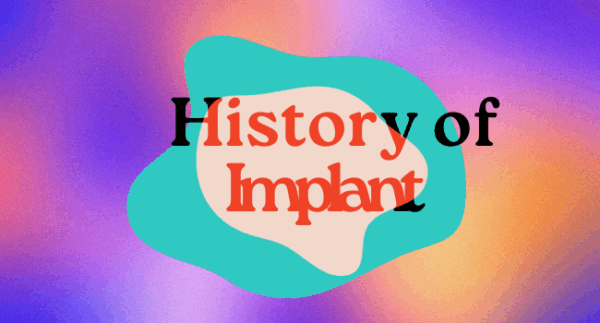
Help Us Protect Access to Sexual and Reproductive Health Care Today!
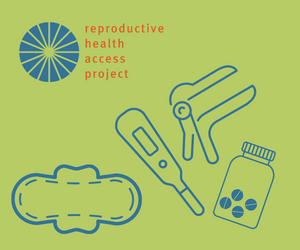
As RHAP continues to grow as an organization, so do our values, mission, and the scope of our work. One of RHAP’s values is the belief that everyone should be able to receive reproductive health care—including abortion, contraception, and miscarriage care—safely, easily, affordably, with dignity, and without judgment. To this end, we introduced the Advanced Practice Clinician (APC) Cluster of the Reproductive Health Access Network in the summer of 2020. We know that nurses and advanced practice clinicians — including nurse practitioners, certified nurse-midwives, and physician assistants — play essential roles in the reproductive health, rights, and justice movements, and are vital to the provision of comprehensive reproductive health care, including abortion care.
This is why we saw the need to prioritize nursing and APC learners when building out our continuing education (CE) curricula. Last year, we expanded the accreditation of our medication abortion workshop to provide 2.0 Continuing Nursing Education (CNE) credits in addition to the 2.0 Continuing Medical Education (CME) credits available. We held our first CNE- and CME-accredited workshop in November of 2020.
This month, we are thrilled to announce that our workshop on early pregnancy loss care will also offer CNE accreditation. This is an important step in deepening our work to support all clinicians who are interested in advancing their clinical skills to provide full-spectrum reproductive health care, and is especially valuable in places where restrictive legislation limits APCs from providing abortion care, even though we know this to be fully within their scope as providers. We look forward to strengthening our work with APCs, providing skill-building opportunities to all primary care clinicians, and continuing to uplift the essential role that all clinicians play in expanding and protecting access to reproductive health care. We are also planning on introducing two new CME and CNE accredited workshops on Gender-affirming Reproductive Health Care and Reproductive Health Care for People with Disabilities, as we strive to include and reflect the voices of different communities, identities, and experiences in our programs.
The Illinois Cluster will present RHAP’s first CNE-accredited early pregnancy loss workshop on Tuesday, November 16th. If you are interested in earning free CNE or CME and learning more about the provision of early pregnancy loss care, RSVP here.
If you are interested in earning free CNE or CME and learning more about the provision of medication abortion care, RSVP to the New York Cluster meeting on Wednesday, November 17th here.
If you are interested in hosting a free RHAP CE workshop on medication abortion, early pregnancy loss, or telehealth for reproductive health care, reach out to our Network team. And, if you’d like to work with RHAP to suggest or develop new CE workshops, please reach out to Silpa, our Director of Programs and Evaluation.
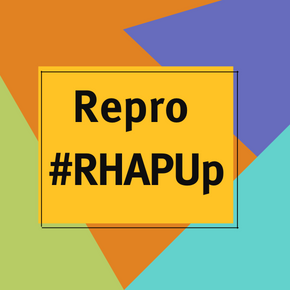 Whew! The political landscape of abortion care and reproductive rights has been a whirlwind this past month. The attacks on our reproductive freedom seem to be never-ending, but thanks to advocates on the ground and the fortitude of abortion funds nationwide, we still have small wins to celebrate. Read through the list of political updates and changes that you may have missed!
Whew! The political landscape of abortion care and reproductive rights has been a whirlwind this past month. The attacks on our reproductive freedom seem to be never-ending, but thanks to advocates on the ground and the fortitude of abortion funds nationwide, we still have small wins to celebrate. Read through the list of political updates and changes that you may have missed!
Illinois has achieved an amazing victory in solidifying equal access to abortion care for the youth population. On October 28th, legislators approved to repeal the Parental Notification of Abortion Act! This is especially important for advancing and protecting access to abortion care for the youth in Illinois and throughout the Midwest. Forcing young patients to disclose their decision has proven to place pregnant minors in harm’s way. This will go into effect in June 2022, and it marks the first ever fully repealed parental notification law! Great work everyone!
Meanwhile in Oklahoma, the Supreme Court temporarily blocked three anti-abortion laws that were set to go into place on November 1st. One is requiring that abortion providers must be board-certified OB/GYNs, which becomes an issue for highly-trained, board-certified family physicians that will be arbitrarily disqualified(1).
The other two bans are intended to place unreasonable and unconstitutional restrictions on medication abortions. A new requirement on admitting privileges, combined with an “ultrasound requirement more restrictive than an ultrasound law already struck down by the Oklahoma Supreme Court”, would “require patients to make two separate trips to a healthcare provider at least 72-hours apart” as well as other delays in their abortion care(2). If these restrictions were allowed to take effect, over half of Oklahoma’s abortion providers would be forced to stop providing abortions. Although this ruling means blocking these abortion bans while the case continues, Oklahoma has issued a trigger ban, which prohibits abortion almost entirely if Roe v. Wade is ever overturned. Read more from the Center of Reproductive Rights.
Monday, November 1, the Supreme Court heard arguments on two cases challenging SB 8 in Texas: Whole Woman’s Health v. Texas, a case from abortion providers, and United States v. Texas, a challenge from the Department of Justice. In the meantime, SB 8 has continued to deny Texans their constitutional right to abortion care for over 60 days, harming not only Texans, but also those seeking abortion care in surrounding states, where abortion clinics are flooded with patients from Texas. We were disappointed to hear that during the oral arguments, the lawyers and justices only briefly touched on the devastating consequences of SB 8 on the ground. The ripple effect of SB 8 cannot be stressed enough. Now we await a decision on these cases from SCOTUS.
Once again, we cannot rely on the courts to protect abortion access. Congress must step in and pass federal legislation such as the Women’s Health Protection Act (WHPA), EACH Act, and HEAL Act to protect access to critical health care for everyone.
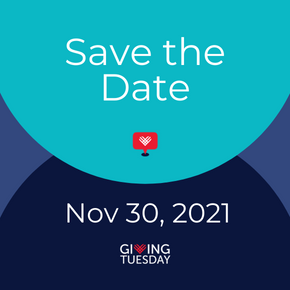
Give a gift this #GivingTuesday, November 30, to mobilize, train, and support primary care clinicians to expand access to abortion, contraception, and early pregnancy loss care for everyone.
As the country continues to pass more draconian laws against abortion and reproductive health, we are seeing an ever-widening gap in access to necessary health care. Regardless of what the future holds, the Reproductive Health Access Project remains firm in our mission to expand access to reproductive health care for everyone, everywhere. We are unwavering in our belief that every person should be able to access comprehensive reproductive health care in their own communities, free from any restrictions, barriers, or stigma.
Since our founding, RHAP has focused on training, supporting, and mobilizing clinicians to expand access in their communities. This is why, as we see inequities grow simply based on the state in which one lives, RHAP’s work on the ground is more critical than ever. We know that if abortion becomes more restricted than it already is – or outright illegal in some states – accessing abortion care will be even more difficult and complex for people who already have little to no access. As such, we are prepared to dig deeper and strengthen the work that we do, ensuring that our strategies meet the unique needs of our clinicians on the ground and the communities they serve.
Our goal is to provide our national Network of clinicians with the resources they need to advocate for and provide reproductive health care, no matter where they are. All gifts to the Reproductive Health Access Project on #GivingTuesday will directly support our work to train and support clinicians to provide reproductive health care across the country.
Every dollar counts!! Whether it is $50, $100, or $250, your support today will make a difference towards access to reproductive health care. Thanks to our amazing supporters, donations will be matched dollar-for-dollar, up to $50,000, by December 31. So, mark your calendars for November 30 to help us build a powerful, diverse national movement of primary care clinicians providing, mobilizing for, and expanding access to reproductive health care on #GivingTuesday!
If you have any questions, please contact our Manager of Individual Giving, Victoria Keehn.
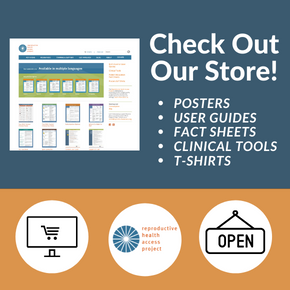
Did you know RHAP has an online store? You can purchase birth control user guides, fact sheets, clinical tools, posters, and t-shirts through our store.
RHAP’s user guides include information on various birth control methods such as emergency contraception, IUDs, condoms, pills, the ring, and so much more. Our fact sheets also cover many topics such as Early Abortion Options, Which EC is Right for Me, and Birth Control Across the Gender Spectrum.
Our materials are:
One of RHAP’s most popular items in the store is our Birth Control Choices Poster. This poster compares birth control methods based on essential information about each method, how to use, impacts on bleeding, common side effects, and more. This is an ideal poster for health centers, clinicians’ offices, and school clinics. It features a colorful design and easy-to-read descriptions of each method.
Additionally, RHAP offers various clinical tools such as our Quick Start Algorithm, a clinical guide for how clinicians can ‘quick start’ hormonal contraception. Other tools include our Medical Eligibility for Initiating Contraception guide, a great reference tool for health care professionals who want to check a patient’s medical eligibility for various forms of contraception. The information is based on the World Health Organization’s and US Centers for Disease Control and Prevention’s recommendations for initiating contraception.
You can check out and place orders from RHAP’s store here. If you have any questions about our store please feel free to email us.
Your gift allows us to train and support health care providers across the United States so they can offer patients compassionate and comprehensive care.
Aug 14
